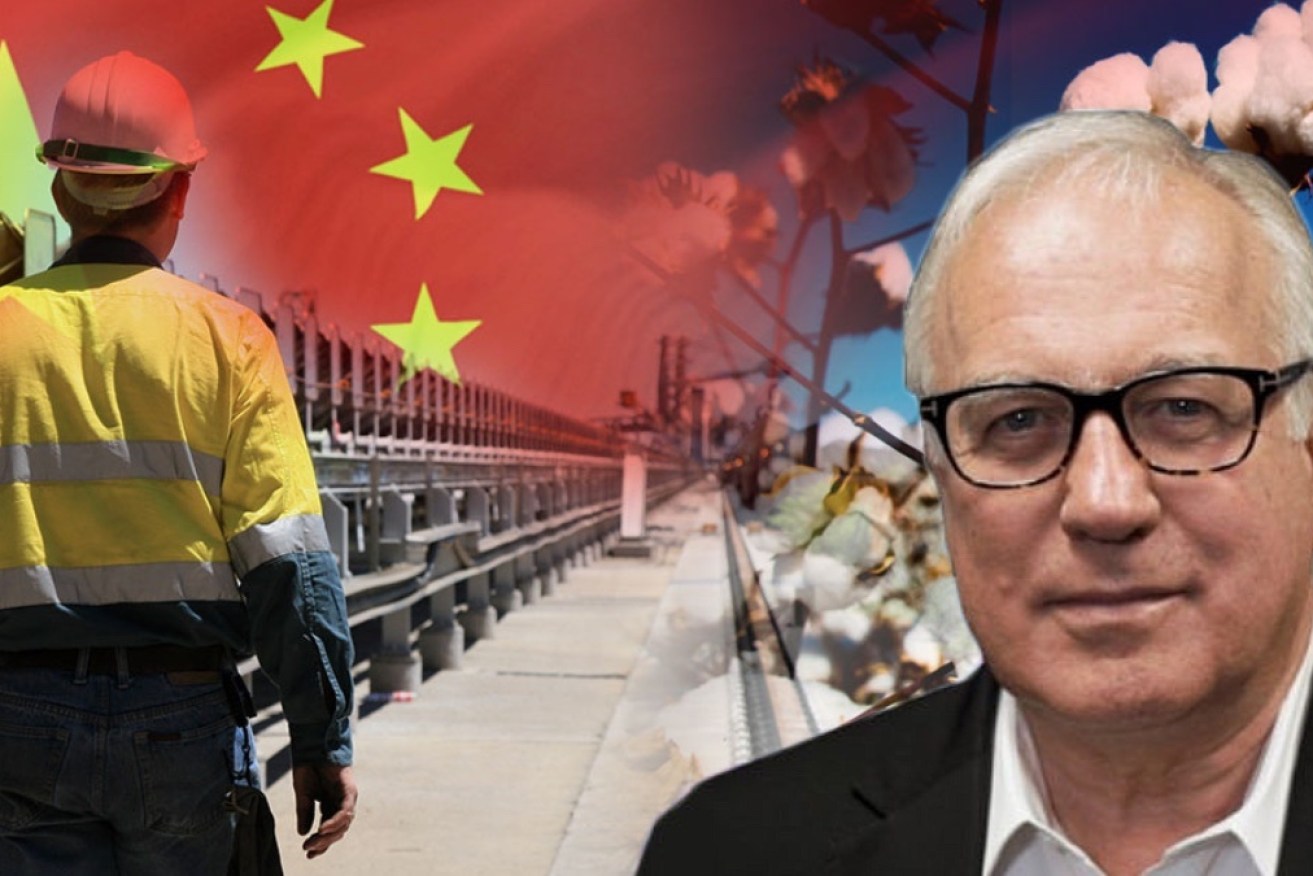Alan Kohler: When the world burns, China will be driving the fire engine


Photo: TND
The 28th meeting to deal with climate change was the 26th waste of time. The agreement that came out of it is being hailed as a breakthrough, but it wasn’t even an agreement, let alone a breakthrough.
(Kyoto in 1997 and Paris in 2015 were not wastes of time, and only became so later, when nobody did what they said they would.)
The year had begun with some hope, after UN secretary-general Antonio Guterres declared to fossil fuel producers “and their enablers” that if they couldn’t set a credible course for net zero, “you should not be in business”.
But 2023 is ending with fossil fuel producers’ businesses growing, and COP28 in Dubai run by a fossil fuel producer.
It wasn’t a complete waste of time. After all, 70,000 people gathering to discuss ways to limit global warming is definitely worthwhile.
But the celebrated bit in the final text about transitioning away from fossil fuels was one of eight paragraphs that came after this lead-in sentence: “… calls on Parties to contribute to the following global efforts, in a nationally determined manner …”
It’s being hailed as a breakthrough, even though it didn’t say “phase out”, as most of those involved had been arguing for, because it’s the first time the words “fossil fuels” have made it into any of these texts at all – at meeting No.28, mind – and the statement preceded those words with “transitioning away from”.
Weasel words
But the problem is not just the word “contribute” (as opposed to “do”). It’s not an agreement to contribute but an agreement to call on countries to contribute … “in a national determined manner” what’s more – that is, in whatever way you like.
The top paragraph after the phrase “calls on Parties to contribute to the following global efforts” says “(by) tripling renewable energy capacity globally and doubling the global average annual rate of energy efficiency improvements by 2030”, which is also presented as a breakthrough.
But as British journalist George Monbiot remarked on a TV panel show: “It’s a bit like going on a diet and saying OK, yes, I did eat a gigantic tub of ice cream, and an enormous cake, but I also ate a salad, so why aren’t I losing weight?”
He went on: “It doesn’t matter how many wind turbines you put up, it doesn’t matter how many solar panels you put up, unless you’re retiring fossil fuel infrastructure, unless you are legislating to leave coal oil and gas where it belongs, which is in geological strata, you are going to cook the planet.”
Australia has not legislated to leave coal and gas in the ground; in fact it is approving new projects. We have legislated inadequate emissions-reduction targets that won’t be met.
The biggest of the big polluters
But that’s OK because it doesn’t matter much what we do, beyond the need to at least appear to be part of the global effort.
It really only matters what China, India, the US and Europe do, and whether Saudi Arabia and the other fossil fuel producers continue to lobby as successfully as they have been.
And like most other things in geopolitics, it will come down to what America and China do, but not in the way you might think.
Anyone who is paying attention knows that it’s now impossible to stop the world exceeding 1.5 degrees Celsius of warming, and probably two degrees, which means life on Earth is going to get difficult no matter what happens from here, and in a decade or so – no more than two decades – there will be a desperate rush for renewable energy and battery materials, as well as ways to stay cool and safe and get away from rising sea levels.
China is positioning itself to control the supply of renewable energy and batteries when that time comes, and is succeeding. When the world is burning, China will be driving the fire engine.
The United States realised what’s going on a bit late and came up with the Inflation Reduction Act’s massive subsidies for renewable energy manufacture and electrification, but the problem is that the US is a democracy and the Republicans only want to cut spending, which means there is a limit on what the US can do. China has no limit.
Americans seem ready to install Donald Trump as President again, in which case everything to do with climate change would get cancelled and China would have a more or less free run.
Meanwhile, in Australia economist Ross Garnaut and Rod Sims, the former chairman of the ACCC, have created something called the “Superpower Institute”, to help Australia seize what they call “the extraordinary economic opportunities of the post-carbon world”. Basically, they are trying to get Australia to do what China has already done.
I admire their enthusiasm, and wish them all success in turning Australia into a renewable energy superpower, but I think the investment required to compete with China is way beyond both the resources and the inclination of the Albanese government – any Australian government.
10,000km of power lines needed
It’s not beyond the resources of Australia’s $3.5 trillion superannuation system, but while they’re investing a lot in renewable energy, the government would need to entice or force them to get behind that project.
Last week the Australian Energy Market Operator said all of Australia’s coal-fired power stations would close by 2038 and that, by then, renewable capacity needs to triple and 10,000 kilometres of new power lines will have to be built, against the wishes of a lot of farmers, whose pastures it will violate. That’s going to require both money and difficult political leadership.
Australia gets 5.2 per cent of the sun that hits the Earth’s land, not far behind China and America’s 6.5 per cent, and there’s no reason why we can’t turn that sunshine into a globally significant industry like we did with the luck of having a lot of coal and gas.
But that needs capital and long consistent focus, and it’s a race against others who are taking steroids.
And before we get to the starting line we first need to keep our own lights on by tripling renewable capacity to replace coal, as we signed up to in Dubai, and building 10,000 kilometres of power lines where land owners don’t want them.
Climate change has been the key issue underlying Australian politics and economics for two decades and as 2023 ends, it still is.
Alan Kohler writes twice a week for The New Daily. He is finance presenter on the ABC News and also writes for Intelligent Investor








